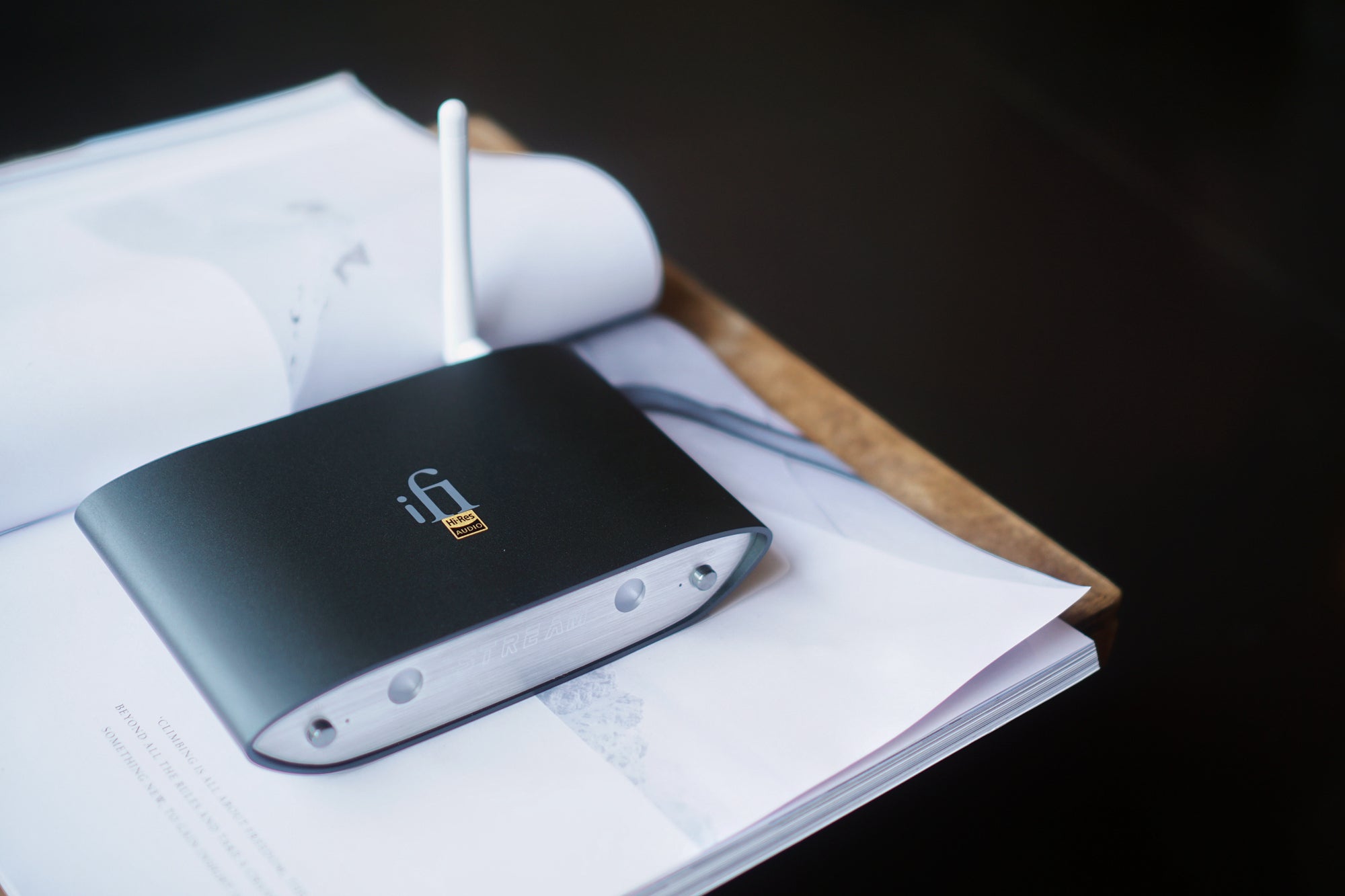We will send you an email to reset your password.
✒️ Written by Hai Wei | 📷 Photo credit : Hai Wei⠀
✅ SPECIFICATIONS / FEATURES
- Music Formats
Both support MQA playback.
Zen supports DSD native up to 11.2MHz and PCM up to 384k.
Node supports PCM up to 192k.
- Digital Outputs
Zen supports USB 3.0 with iFi’s Active Noise Cancelling technology and coaxial output with built in iPurifier.
Node supports USB 2.0, coaxial, optical and Bluetooth 5.0 aptX HD output.
- Digital Inputs
Zen doesn't support any digital input.
Node supports HDMI eArc (for TV), optical and Bluetooth 5.0 aptX input.
- Analog Outputs
Zen doesn't come with a built-in DAC.
Node features a built-in DAC with RCA (fixed or variable), subwoofer and headphone output.
- Hardwares
Both are using a quad-core ARM processor, support dual-band Wifi (2.4/5G) and Ethernet.
Zen is powered by a 9-15V DC power supply. You may upgrade to a better linear power supplier (LPS) in the future.
Node is powered by a figure-8 AC power cable. You may upgrade the power cable for a better sound. If you want to power it with your own LPS, you have to purchase a third party DC module and modify it.
- Voice Control
Zen doesn't come with a voice control function.
Node supports those popular voice assistants such as Google Assistant, Apple Siri and Amazon Alexa.
- Streaming Services
Both are Roon ready, support Airplay 2 and mainstream music streaming platforms like Tidal Connect, Spotify Connect.
- Operating System & User Interface
The current operating system of Zen is modified by Volumio. You have to access it via a correct IP or URL, like the Volumio on Raspberry. The user interface is still quite simple and crude. A 3rd app is required for DLNA playback if you want to play music from a local or NAS library.
Node is using an all in one system called BluOS to master everything in one app. It is an ecosystem that combines your Tidal account, local library, NAS and all of the BluOS supported devices (like Bluesound and some NAD streamers) together. Tidal is deeply integrated into BluOS. You may search, play, create a playlist, and save your own collections from different platforms, including music files from Tidal and your own hard disk. The interface is smart, beautiful and user friendly. Besides, the app is completely free.
//

✅ SOUND QUALITY - Digital Output Section
Both of them sound very natural, smooth and musical. If you really want to pick out a winner, I would say Zen Stream is the better one. It creates a more solid imaging, lively ambience and ariness in the 3-dimensional sound stage, which is also deeper and taller than Node.
Node has warmer tuning, the mid is more meaty and lush, but the separation and micro details are slightly weaker than Zen Stream.
The difference of sound quality between Zen Stream and Node is actually quite close but still noticeable.
//
✅ CONCLUSION
- Price vs User Experience
Zen Stream is a more budget-friendly choice. It’s around 30% or RM700+ cheaper than Node.
Node has a more premium price tag, but in return, it gives you a more mature and versatile BluOS that combines everythings together. Meanwhile on the Zen Stream, a 3rd party app is required to stream DLNA—most of the well-known DLNA apps like Bubble UPNP and Mconnect are not free, and they are also not as versatile as the BluOS.
- Suitable For
Zen Stream will suit audiophiles owning a large library of hi-res music with all kinds of format as the Zen has a wider file format compatibility, including native DSD 256 and PCM 384kHz. It also features some iFi exclusive technology like filter or purifier to eliminate noise and jitter. The quality of digital output is slightly better as well.
As compared, the Node can only support PCM files up to 24bit/192kHz.
Node is a one-off solution. It will suit users of all kinds as it has a wide selection of inputs and outputs. HDMI eARC support and sub out for the movie and subwoofer lovers, built-in DAC with RCA line out for a clean setup while having an upgrade path with USB, coaxial, optical output and input (optical), 2-way Bluetooth 5.0 aptX for casual listening, it even has a headphone output. The quality of its digital out is slightly weaker but the BluOS UI is way more user friendly and versatile than the Zen Stream.
//
✨ SHOPIFY : iFi Zen Stream
◇ Retail : RM1949 | Promo : PM for best price
✨ SHOPIFY : Bluesound Node
◇ Retail : RM2899 | Promo : PM for best price


Leave a comments